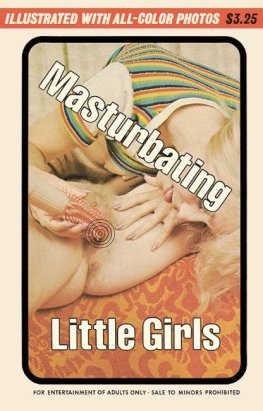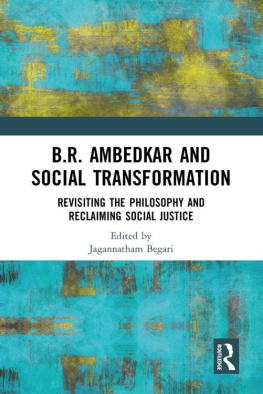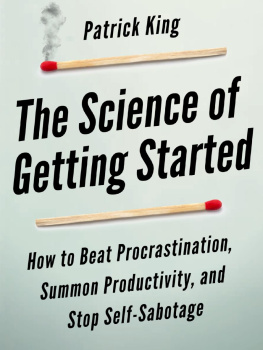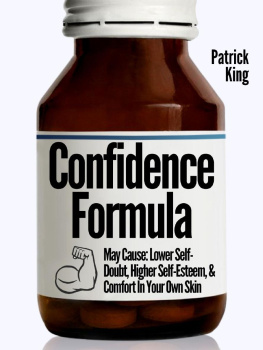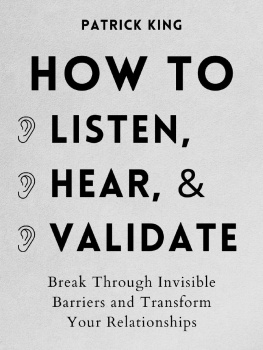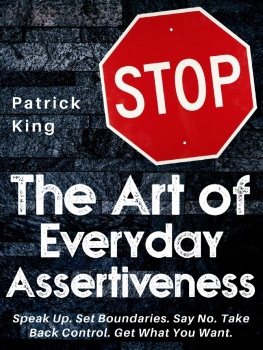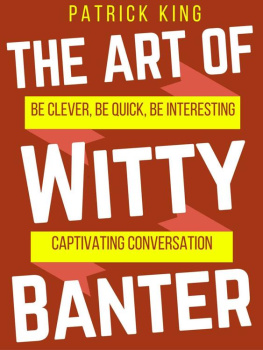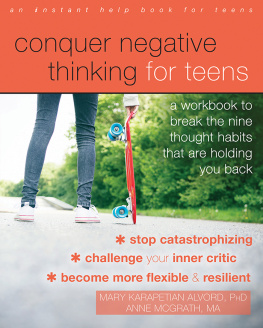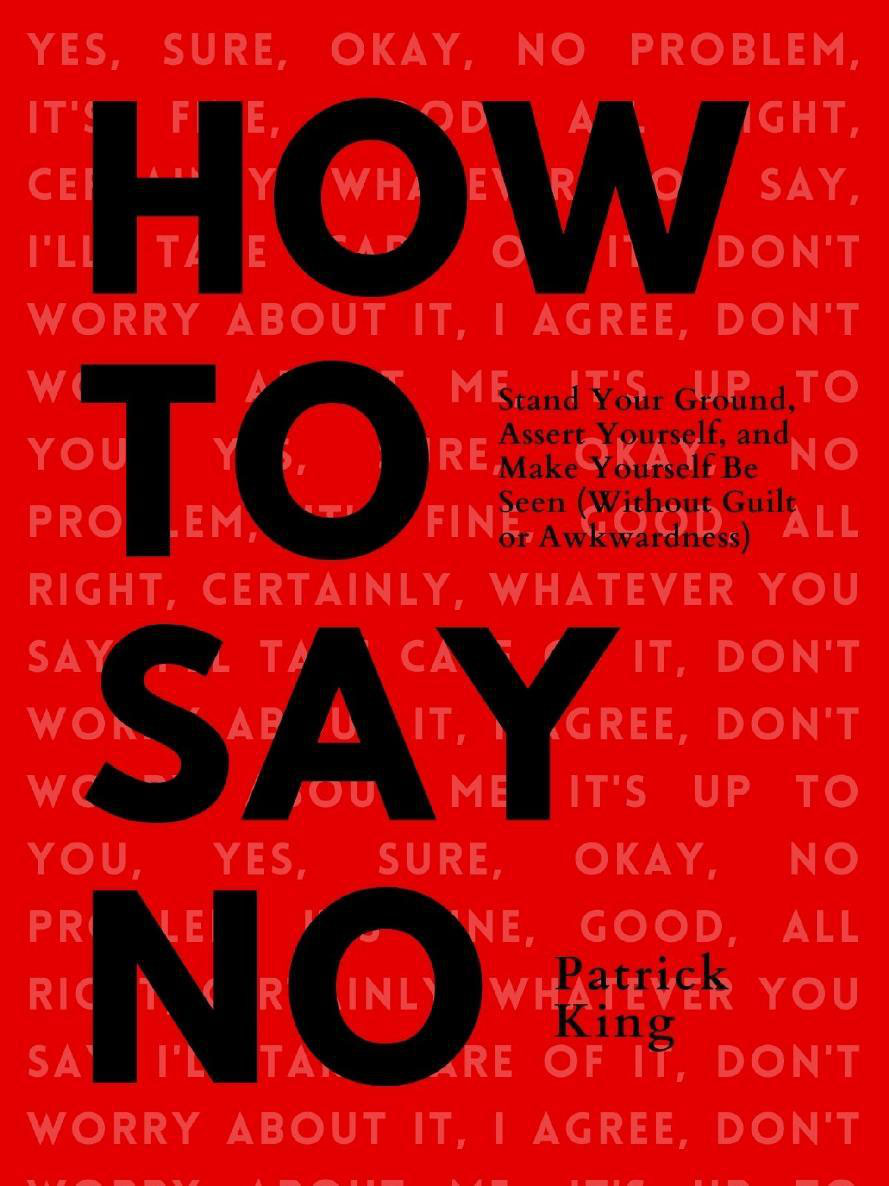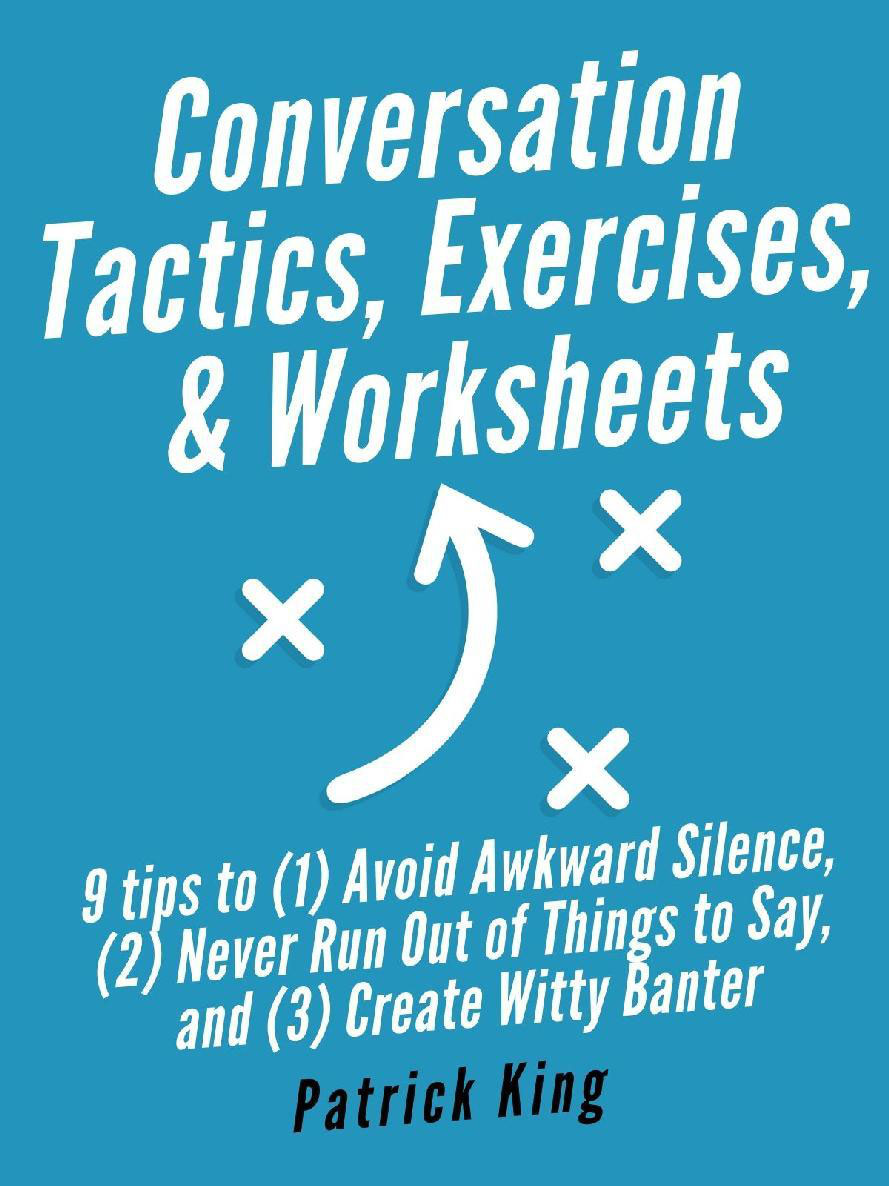Patrick King
How To Say No
Stand Your Ground, Assert Yourself, and Make Yourself Be Seen
How to Say No:
Stand Your Ground, Assert Yourself, and Make Yourself Be Seen (Without Guilt or Awkwardness)
By Patrick King
Social Interaction and Conversation Coach at www.PatrickKingConsulting.com
< < CLICK HERE for your FREE 25-PAGE MINIBOOK: Conversation Tactics, Worksheets, and Exercises. > >
--9 proven techniques to avoid awkward silence
--How to be scientifically funnier and more likable
--How to be wittier and quicker instantly
--Making a great impression with anyone
Table of Contents
Chapter 1: The Importance of Saying No
Why Saying No is So Essential
Why We Struggle to Say No
Reason 1: You Want People to Like You
Reason 2: You are Afraid that Youll Miss Out on Something if You Say No
Reason 3: You Genuinely Care
Reason 4: You Feel You HAVE TO Care
The Psychological Root of Never Saying No: Codependency
Chapter 2: Reset Your Mindset About Saying No
Getting Rid of Counter-Mindsets
Change Strategies for Counter-Mindsets
Rewriting the Script that Saying No Makes You a Bad Person
Rewriting the Script that Saying No Means You Dont Care
Rewriting the Script that Says that Saying No Means Youre Selfish
Chapter 3: Train Your No Muscle - Proven Tactics to Help You Say NO
Kinds of Assertiveness
Mentally Preparing Yourself
Changing Your Behaviors and Beliefs One No at a Time
Saying No Strategically with the Right Tone
One Final Tactic: Buy Yourself Time
Chapter 4. Setting and Enforcing Boundaries
Choosing and Enforcing Your Boundaries
Toxic Takers
Chapter 5: Build Your Self-esteem and Self-image
Self-Esteem Boost Technique One: Kill Comparisons
Self-Esteem Boost Technique Two: Examine Your Core Beliefs
Self-Esteem Boost Technique Three: Be Nicer to Yourself!
Summary Guide
Chapter 1: The Importance of Saying No
Imagine a couple is planning their wedding. Because both come from big, close families, everyone gets involved in the plans, and soon, every parent, aunt, uncle, cousin, and distant relative is weighing in with their opinion on how things should be done. The engaged couple, wanting to be nice and show how appreciative they are for all the help theyre getting, accept more and more interference, saying yes to every new person added to the guest list, despite their reservations. They hold their tongues when people ignore their wishes or steer things in a different direction.
You probably already know how this story ends: soon, the wedding doesnt remotely resemble what the couple originally wanted, and stress is at a fever pitch. Eventually, one or both of them loses their temper and puts their foot down. The families on both sides are hurt and confused. Sheesh, no need to be rude! If you didnt like it, why didnt you just say so?
If youre reading this book, chances are youve had a similar experience in your own life, and would like to know how to avoid reaching this kind of breaking point again. Good communication, empathy, and knowing how to compromise are wonderful skills to have, but in this book, well be talking about a skill that is relatively undeveloped in some of us: the art of saying no.
Having firm and healthy boundaries that you are comfortable asserting is a non-negotiable part of good mental health and self-esteem. But learning to say no is about so much more than simply putting your foot down with pushy family members to save some drama. The benefits of speaking up to defend your own boundaries and limits go far beyond this.
Why Saying No is So Essential
Saying no is about respect. Respect for ourselves and for others. When we say no, we assert our own boundaries, and this communicates to both ourselves and to others that we have value, and also that we have values, i.e. we have principles, goals, and limits that we care about protecting.
Saying no is a conscious, deliberate act. It empowers you because in saying this is not what I want, you are also essentially saying what you do want, and in so doing, shape your own life. If you can say no, you take back your own power and agency and correctly balance other peoples desires, needs, and demands with your own.
If you can say no from a healthy and conscious state of mind, then you know how to set your own intention and direct your life in the direction you want it to go according to whats important to you. And the more you do this, the more confident you feel in your dreams and goals, and in your right to expect a life of your own, to do with it what you want.
However, if you never say no, you end up deferring to other peoples ideas of who you are, what your life should look like, and what you should do. You put their needs, expectations, and comfort before your own. Suddenly, you are bending over backward to make it easier for them to achieve their desires, all the while ignoring or dismissing your own. The end result is that your desires and opinions seem less important, your dreams go unfulfilled, your limits disrespected, and, in short, your life takes on a shape that makes it convenient for others, rather than being something that you designed for yourself.
We dont only say no when things impinge on our values, though. No is a practical wordit helps us cut down on stress and respect our own limitations. We cant do everything! Even if theres a bunch of things you genuinely want to say yes to, it takes maturity to home in on your priorities and say no when you feel overwhelmed, or have your mental and emotional resources stretched. Though we might not like it, time and energy are always limited quantities. We need to budget them just as we budget our limited finances.
When you say no firmly and with confidence, people end up putting more value on your yes. Rather than seeming like a doormat who will do anything, people come to respect your time, and know that you will respect theirs by being honest upfront about what you can and cant do for them. When you value yourself, you communicate this to others, and you actually end up avoiding confusion, awkwardness, overwhelm, or guilt from saying yes when you shouldnt. You only boost your own sense of worth and bring more authenticity to your relationships. You dont take things personally and dont allow guilt to control your life.
Finally, one great benefit of mastering no is that you give yourself so much more time and energy to pursue what you really care about, i.e. all those things you can say a hearty and resounding yes to!
Are you a person who is constantly over-committing?
Many of us are trained to think of YES as such a positive, helpful, and healthy word. But this word can be surprisingly destructive. Maybe your job demands too much of you, and you work unpaid overtime or answer emails late at night when you should be relaxing. Maybe you end up doing all the chores, or agreeing to all the organizing for your social group or PTA. Maybe you have a pushy family or a partner who you feel makes constant demands that you cant ignore. Between work commitments, children, family, studies, life admin, and relationships, most of us have a lot of demands not just on our time, but on our money, our emotions, and even our physical energy.


